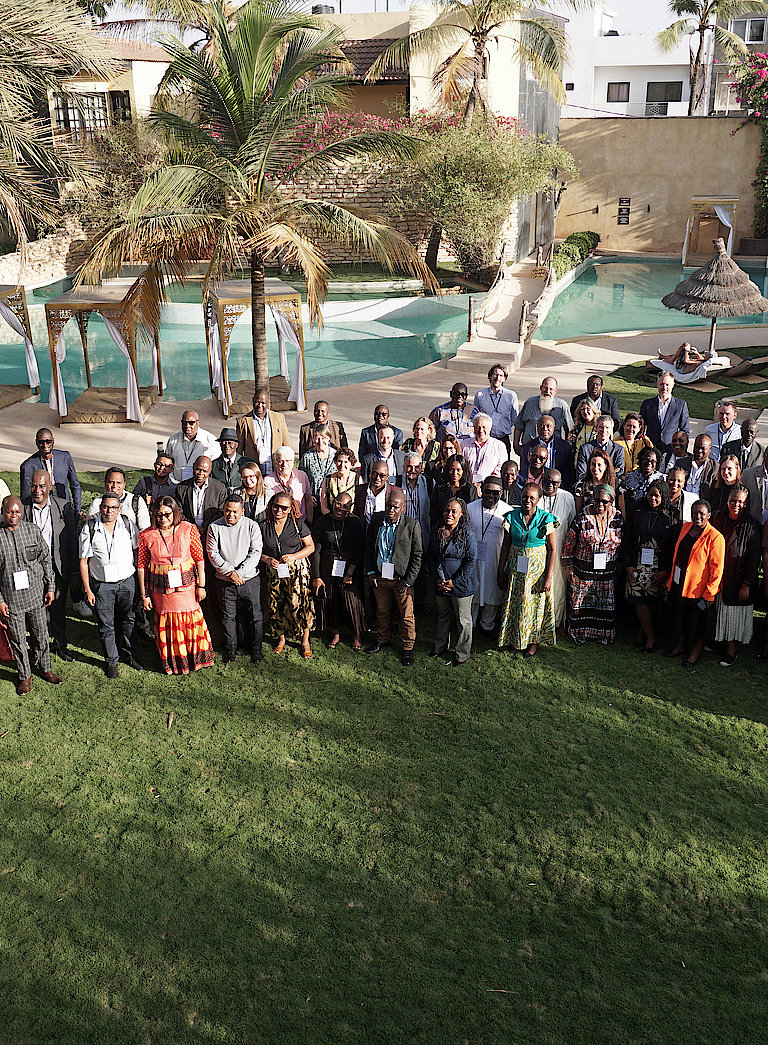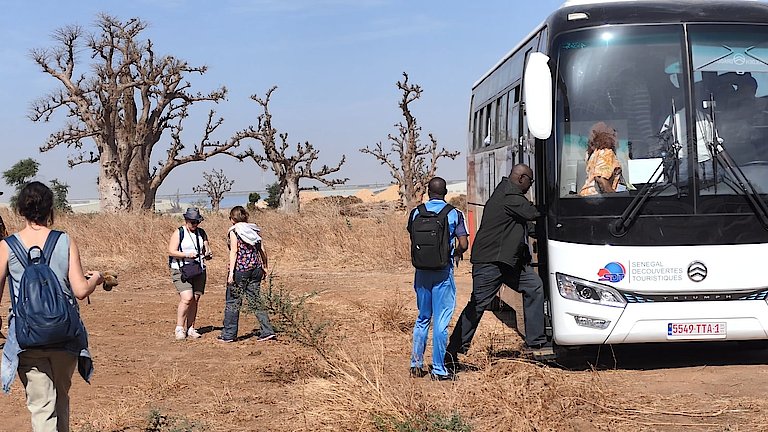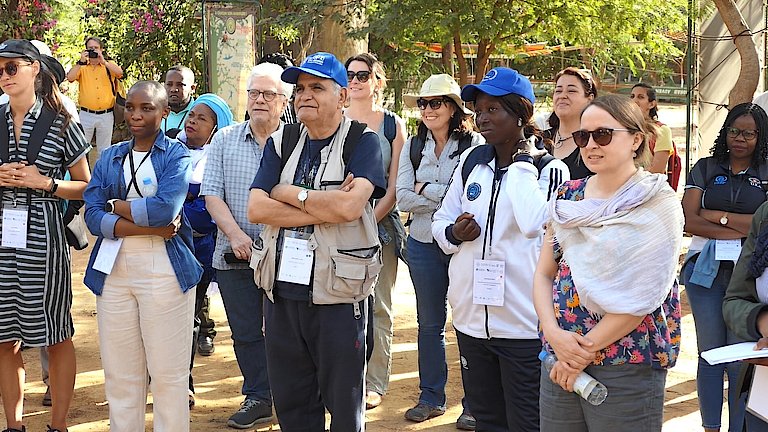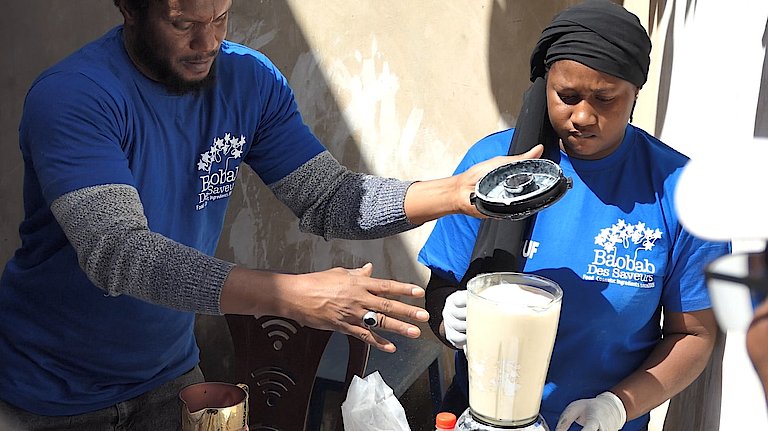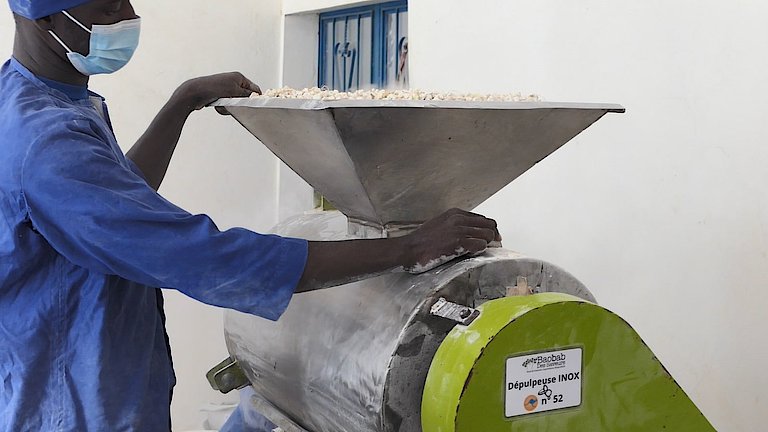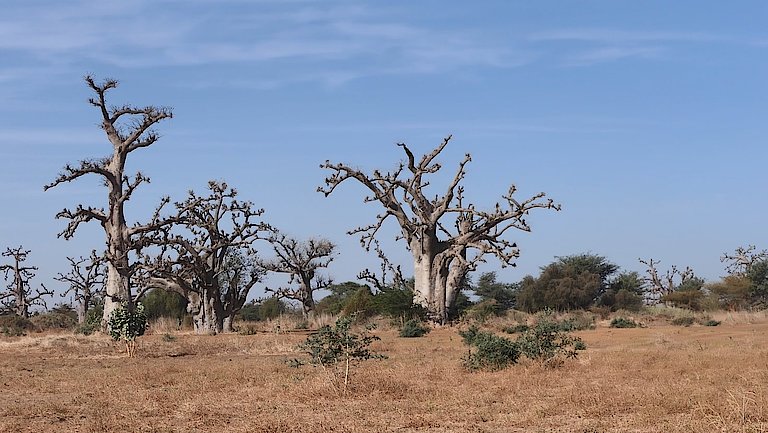During COP 15 and COP 16 of the Convention on Biological Diversity (CBD), it was agreed to significantly increase the sharing of benefits as well as to ensure Indigenous voices are integral to biodiversity governance. Therefore, it is high time for mainstreaming ABS and support an enabling environment for its successful implementation at a broader national level.
The 13th Pan-African Workshop in Saly, Senegal
To continue the dialogue on a regional level, the multi-donor funded ABS Capacity Development Initiative and the BMZ-funded global project BioInnovation Africa organised the 13th Pan-African Workshop in Saly, Senegal last February. The workshop brought together African National ABS-, CBD- and ITPGRFA-Focal Points, as well as representatives of African and European private sector entities, African Indigenous Peoples and Local Communities (IP&LC) and agencies supporting international development cooperation.
One key objective of the workshop was to support public and business partners in elaborating national and regional approaches to effectively achieve an increase in the sharing of benefits based on the access to biological resources. This also included the identification capacity development needs of public and non-public actors, including IP&LCs when valorising these resources and developing biodiversity-based value chains.
Making Access and Benefit-sharing (ABS) work for Africa
Supporting an enabling environment
Among others, an enabling environment for mainstreaming ABS and biotrade requires the:
- Involvement of all actors and enhanced stakeholder consultation along value chains as well as the involvement of pertinent authorities
- Integration of ABS and biotrade in the national planning processes and the alignment with sectoral policies as well as the use of synergies with other existing instruments, such as the International Treaty on Plant Genetic Resources for Food and Agriculture (ITPGRFA).
- Strengthening of national legal, political, and institutional structures and capacities for the conservation and sustainable use of biodiversity
- Integration of ABS and biotrade in National Biodiversity Strategy and Action Plans (NBSAP)
The valorisation of biological resources offers a key opportunity to mainstream ABS across multiple sectors including pharmaceuticals, food and beverages, cosmetics, fragrances, botanicals, biotechnology, and agriculture.
The Baobab case
Baobab is a plant species that can be found all over Africa. During the workshop, the African Baobab Alliance was presented as a successful sectoral approach for the valorisation of biological resources and the demonstration of Baobab’s commercial potential. Day three of the workshop included a field trip with all participants to learn more about the processing and commercial use of Baobab and was followed by an exhibition of Baobab and other natural products and ingredients.
The 13th Pan-African Workshop was organised on behalf of the Senegalese Ministry of the Environment and Ecological Transition (METE), the Secretariat of the International Treaty on Plant Genetic Resources for Food and Agriculture (ITPGRFA), the United Nations Environment Programme (UNEP), the Secretariat of the Convention on Biological Diversity (SCBD), and the African Union Commission.
April 2025
